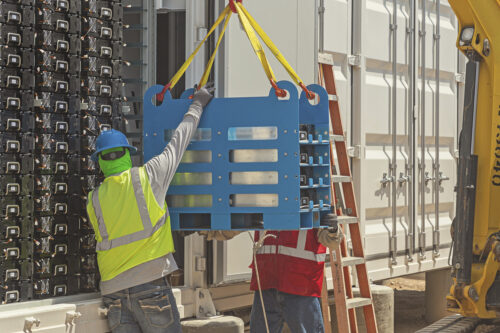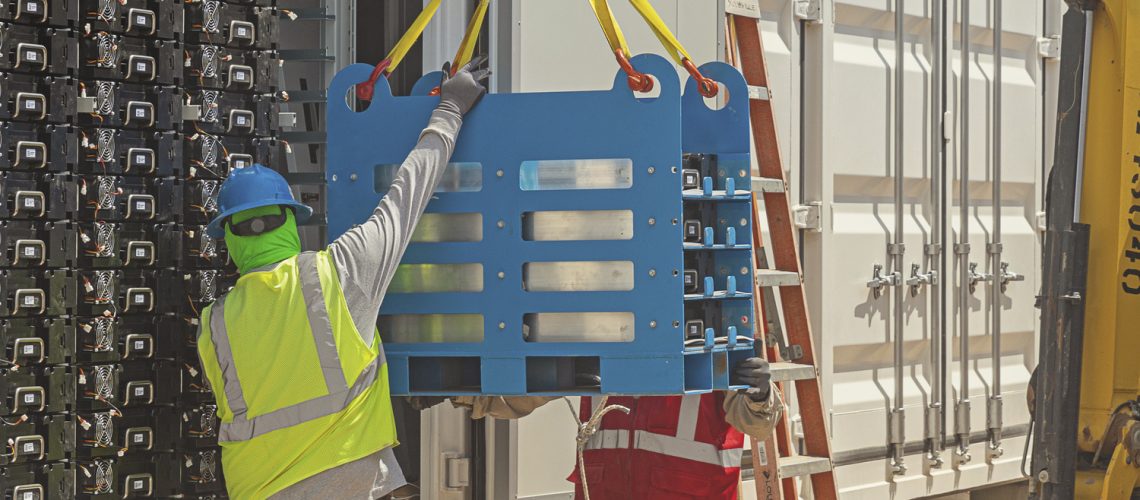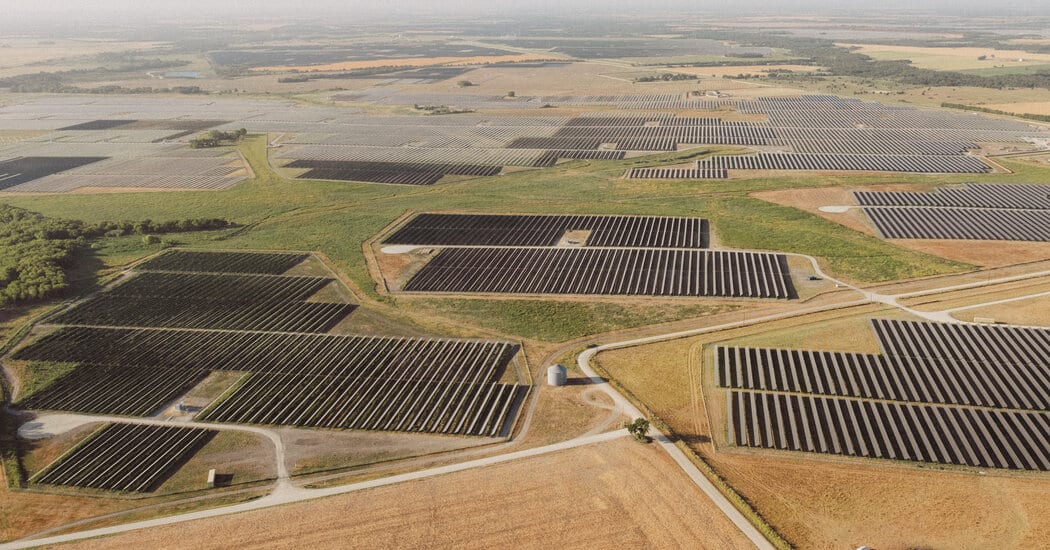Solar EPC Burns & McDonnell has received approval from the U.S. Dept. of Labor for a new open-shop solar apprenticeship program with a national scope intended to help address chronic shortages of skilled labor in the construction industry. The approval allows Burns & McDonnell to immediately launch a program that will enable skilled labor needed on utility-scale solar sites to be provided under the apprenticeship program.

Courtesy of Burns & McDonnell
“This is a significant program that will help address chronic shortages of construction labor throughout the country,” says Brett Williams, president of construction at Burns & McDonnell. “With skilled laborers leaving the industry we have a big gap to fill, and apprenticeships offer a great chance to learn on the job and build out our craft labor pools.”
The program will expand to automatically enroll apprentices in nonunion construction shops in a range of specialties including equipment operators, substation construction, underground power infrastructure, switchgear, trenching and craft labor.
The program will be an important factor for project owners seeking economic incentives under the recently passed Inflation Reduction Act (IRA). The IRA extends production and investment tax credits to incentivize the build-out of a range of clean energy technologies. Provisions of the IRA offer bonus credits to projects that comply with the federal prevailing wage provisions of the Davis-Bacon Act in utilizing registered apprentices on project teams.
With approval of the solar apprenticeship program, Burns & McDonnell now complies with IRA mandates for both open-shop and union labor through its union self-perform arm, AZCO.
“The passing of the IRA will be one of the biggest steps forward in an industry that’s seen a lot of uncertainty for many years,” says Adam Bernardi, sales and strategy lead for renewables engineer-procure-construct projects at Burns & McDonnell. “The number of projects being built will grow exponentially and we’re excited to be able to support our clients by complying with IRA requirements and help train the men and women who help build these projects.”
“With the energy transition taking place in the U.S., solar projects and programs have a demand for workers unlike anything the country has experienced before,” says Jeff Allen, Burns & McDonnell vice president of construction. “Having one of the first apprenticeship programs for solar will help us meet that demand.”
Apprenticeships have played an important role in developing and supporting the American economy. The programs allow workers to get paid while they train for highly skilled jobs that are in demand across numerous construction sectors. The Burns & McDonnell program will fast-track skilled labor into the workforce with an emphasis on safe work practices — long the top priority for every Burns & McDonnell construction project.
“We build people as well as projects,” says Chad Whetro, department manager for health and safety and quality control at Burns & McDonnell. “The demand for people in key areas like power construction is only going to increase for many years to come, so it will be programs like this that establish the pipeline for good-paying careers that can last a lifetime.”
With many solar projects being built in remote areas, recruiting for apprenticeships will be focused on geographic areas in close proximity to where the work is being done. If the project is complete before apprentices qualify to become journeyworkers, they will have opportunities to move to another construction project to complete the process.
Using both union and open-shop construction services, Burns & McDonnell is building several solar projects throughout the country, as well as advanced battery storage facilities. Using advanced tools and techniques, skilled labor and owning the critical path of construction, the renewables construction team continues to bring projects in on budget and on schedule.
News item from Burns & McDonnell




